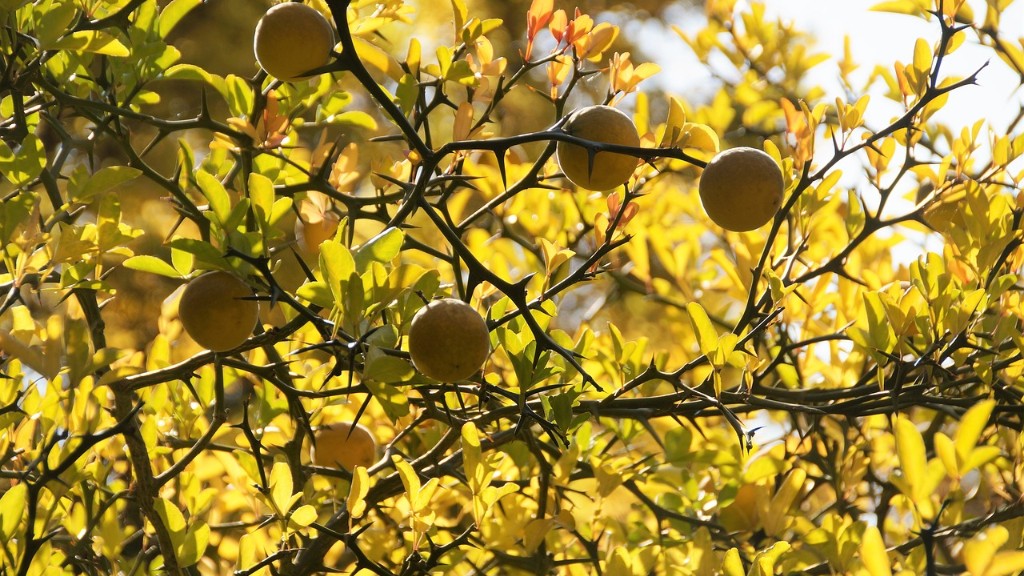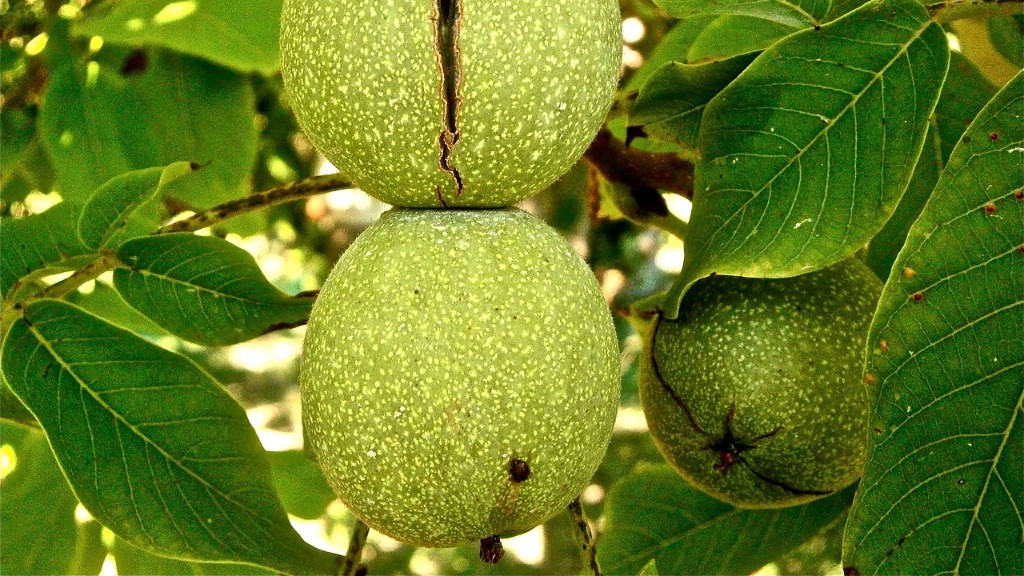Encouraging lemon tree growth requires a methodical approach, but it is not overly complex. Firstly, it’s important to plan which variety of lemon tree to grow and to choose the right spot to plant it. Make sure it gets enough light, water, and soil with good drainage. Once the tree is planted, fertilization is important; use an organic option if possible. Secondly, pruning the tree correctly is essential for healthy growth. Prune branches sparingly to maintain the size and shape of the tree. Thirdly, use mulch around the tree’s base to help retain moisture, keep weeds away, and prevent the bark from rotting due to direct contact with soil. Fourthly, provide regular deep watering to encourage strong root development. Keep the soil moist by checking the soil daily and adding water when necessary. Fifthly, provide adequate drainage of water away from the tree to prevent it from sitting in water. Sixthly, protect the lemon tree from any animals or pests that may frequent the area. Lastly, check for any diseases or insects that may be harmful to the tree and take swift action to address any issue.
Fertilization
Fertilization is an important step in encouraging lemon tree growth that should not be overlooked. A balanced 10-10-10 fertilizer should be applied once a year, during the period of the tree’s active growth. However, this should be done with caution as excess fertilizer can harm the tree. Additionally, for in-ground trees, use a root stimulator when planting to encourage deep root growth and establish a healthy base. Furthermore, an all-purpose liquid fertilizer can be added to the tree’s soil every two-four weeks in the spring and summer when actively growing. Lastly, applying compost with an organic fertilizer every two-four weeks can also help provide the essential nutrients to the tree.
Sunlight
Despite being grown indoors or outdoors, lemon trees need ample amounts of sunlight on a daily basis to maintain vigorous growth. Lemon trees require at least 8-10 hours of direct sunlight and, while they can grow in part shade, this will significantly reduce their yield. Consequently, when planting your lemon tree outdoors, make sure it is in an area that receives at least 8-10 hours of sunlight. Additionally, when growing indoors, provide your lemon tree with a south-facing window which receives ample direct sunlight. As a precaution, a grow lamp can be used in low-light areas to provide the necessary light for your lemon tree.
Soil Requirements
Lemon trees need light, well-draining soils, as they cannot tolerate wet, heavy soils. To ensure the soil is well-draining, the general rule of thumb to remember is that it should take no more than 30 minutes for a one-inch deep hole to dry out; if it takes any longer, then your soil is too heavy and not suitable for growing lemon trees. Furthermore, sandy loam or sandy clay loam soils are optimum for lemon trees, as they will provide adequate drainage whilst still being able to provide the necessary nutrition for healthy growth and development.
Pests and Diseases
Pests and diseases can quickly damage or kill your lemon tree. To prevent pest infestation, keep fallen fruits off the ground as soon as you can, as these can attract pests. Furthermore, regular spraying of insecticides and systemics should be done to prevent activity and infestations from occurring. Additionally, weekly monitoring of the tree’s leaves, branches, and trunk should be done to check for any signs of disease or pests. In the event of a pest or disease, swift action should be taken to prevent these infestations from spreading.
Harvesting
Lemon trees should start producing fruit 3-4 years after planting. By this stage, the fruits should be relatively large and ready to pick. The harvest time may vary depending on the tree’s growing season and the climate in which it is grown. When harvesting, take caution to not harm the tree’s branch or trunk. Additionally, only pick ripe fruits that have been sun-ripened and avoid cutting them off the tree.
Watering
In order for lemon trees to grow properly, they need to be watered regularly. However, it is important to not over water them, as excessive water can lead to problems such as root rot and nutrient deficiencies. The amount of water needed will depend on the type of soil and the climate in which it is grown; sandy soils require more water than clay soils. Additionally, the area in which the tree is planted must have good drainage to prevent the tree from standing in water for an extended period of time. Lastly, the tree should be thoroughly watered once every week unless it is raining heavily, in which case additional watering may not be required.
Temperature Requirements
Understanding the temperature requirements of lemon trees is important to ensure healthy growth and development. Ideal temperatures range between 32°F-90°F, with the optimum range being 55°F-70°F. Lemon trees tend to do best when grown in temperatures that do not exceed 90°F and that do not dip below 32°F. Any extreme temperatures can be fatal for the tree and should be avoided. To ensure the appropriate temperature for lemon trees, the use of shading such as fences, trellises, or strategically planted trees can help keep temperatures at the point desired.
Soil Fumigation
Soil fumigation is a process of soil management used to reduce pests and increase tree growth. It involves injecting a high pressure fog of a specific chemical into the soil around the root system. It is important to be aware of the chemicals used in the fumigation process, as certain ones may be harmful to the environment. As a precaution, make sure the chemicals being used are safe and approved for use on lemon trees. Furthermore, fumigation should be done with care and should not be done when temperatures are either too hot or too cold.
Root Stimulation
Root stimulation can be used to help encourage vigorous growth and to prevent lemons trees from becoming stunted. Root stimulators contain nitrogen and potassium, which act as stimulating agents for root systems. This may be done by amending the soil, which involves adding organic matter such as compost and manure. Additionally, root stimulators can also be used when planting a lemon tree, as this can encourage vigorous growth and help the tree establish itself. Lastly, they can be added to the tree’s soil during the spring and summer months to promote strong root growth and establishment.


